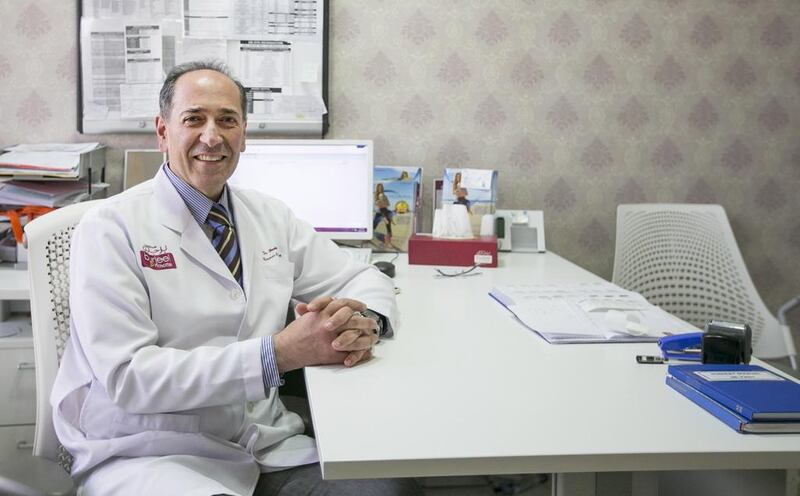The National's report about sexually transmitted diseases provoked a healthy discussion online, particularly on Twitter. The issue is hardly discussed in this country, understandably because of the sensitivity and the social and legal stigma attached to contracting an STD. In 2012, an offer of a discount on medical tests for STDs by the Groupon website stirred negative reactions on social media.
In line with the wider region, Emirati culture disapproves strongly of all sexual relationships outside of wedlock. Neither gender are expected to have relationships before marriage. Although the degree of tolerance can differ between men and women, all extramarital relationships are generally considered unacceptable.
But the truth is that these sort of relationships do happen here, as they do in every other country. And this comes with high risks. Doctors told The National that the percentage of STD patients admitted to gynaecology or urology clinics can be high as 20 per cent. But, since many cases may go unreported, we cannot be sure about the full extent of the problem.
The ideal and reliable way to avoid getting STDs is to stay in a long-term mutually monogamous relationship with a partner who is not infected. That is the course that both religion and culture encourage through the institution of marriage. But this doesn't mean that everyone will adhere to this convention. Unsafe sex outside wedlock is a reality that we need to acknowledge. Society's denial of the issue and the lack of research and discussion about it increases the risks of people contracting an STD. As doctors told this newspaper, people who believe they have an STD are often reluctant to get medical treatment because of their feelings of shame. Without proper support, they continue to suffer in silence.
Awareness on prevention methods seem to be lacking. Dr Afaf El Ghanimi, a consultant in obstetrics and gynaecology at the Health Plus Women's Health Centre, told The National that some vaccinations are available, including one for hepatitis B and one for human papillomavirus (HPV). But people are generally contemptuous of this idea.
Sex education, which is important in the prevention of STDs, is not the norm here due to the taboo around it. The subject is rarely discussed even among family members.
What we need to do is acknowledge the risks involved and push for proper education, at home and in schools regarding safe sex practices. We need to have a frank discussion with adolescents about safe sex and the possibility of getting an STD if they do not take precautions.
The problem is prevalent across the region. According to a report by the United Nations Economic and Social Commission for Western Asia and the United Nations Programme on Youth during the International Year of Youth 2010-2011, half of young people lack knowledge about STDs.
Young people across the region suffer from a lack of easy access to critical health information regarding sexual and reproductive issues, such as unwanted pregnancies, HIV and Aids. Many of them know little about required check-ups not only for those having unsafe sex but people who share non-sterile needles, manicure and pedicure tools, or personal items such as toothbrushes and razors.
As in the case with substance abuse – which is also an issue in the UAE, with children as young as 12 falling victim to drug addiction – the lack of support provided for young people makes them vulnerable to risky behaviours that might have serious consequences.
It is never comfortable to talk about such sensitive topics but the risks involved make it necessary, because our current attitudes are not helping anyone.
aalmazrouei@thenational.ae
Twitter: @AyeshaAlmazroui
It’s time for an uncomfortable conversation ...
Attitudes toward safe sex education must change to prevent cases of sexual transmitted diseases in the UAE, writes Ayesha Almazroui

Comment Latest
COMMENT




